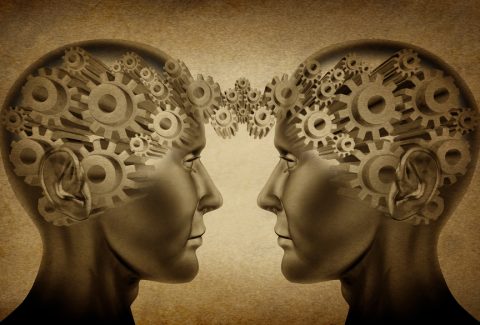Social Factors and Behavior Change and Motivation
Behavior change is a complex process influenced by a myriad of factors, including individual characteristics, psychological processes, and notably, social factors. Understanding the role of social dynamics[1] in motivating behavior change is essential for clinicians, educators, and leaders seeking to facilitate transformation in individuals and communities. This article explores how social factors impact behavior change and motivation, highlighting the importance of social support, cultural norms, and interpersonal relationships in fostering lasting change.
The Impact of Social Factors on Behavior Change
Social factors encompass a wide range of influences, including family dynamics, peer relationships, community context, and societal norms. These factors play a pivotal role in shaping an individual’s motivation to change behavior. Key social influences on behavior change include:
- Social Support: Support from family, friends, and peers can significantly enhance motivation for behavior change.[2] Individuals who perceive they have strong social support are more likely to engage in and sustain positive behavioral changes. This support can take various forms, including emotional encouragement, informational assistance, and tangible resources.[3]
- Peer Influence: The behaviors and attitudes of peers can strongly affect an individual’s choices.[4] Positive peer influence can motivate individuals to adopt healthier behaviors, while negative peer pressure[5] can lead to detrimental choices. Understanding the dynamics of peer relationships can help practitioners leverage positive influences to encourage behavior change.
- Cultural Norms: Cultural beliefs and values shape individuals’ perceptions of acceptable behaviors. Norms within a community can either encourage or hinder behavior change.[6] For example, cultures that prioritize health and well-being may promote healthier lifestyles, while those that do not may create barriers to change. Awareness of these cultural norms is crucial for tailoring interventions that resonate with specific populations.
- Interpersonal Relationships: The quality of interpersonal relationships can impact motivation for behavior change.[7] Supportive, trusting relationships foster open communication and facilitate discussions about change, while toxic or unsupportive relationships can create barriers to motivation. Building positive relationships can enhance individuals’ willingness to pursue behavior change.
The Role of Social Learning in Behavior Change
Social learning theory posits that individuals learn and adopt behaviors through observing and modeling others within their social environment. This theory emphasizes the importance of social influences on behavior change and motivation.[8] Key elements of social learning include:
- Observational Learning: Individuals are likely to imitate behaviors exhibited by role models, especially those they admire or relate to.[9] Positive role models who demonstrate successful behavior change can inspire others to follow suit, fostering a culture of change within a community.
- Social Reinforcement: The reinforcement individuals receive from their social environment can either encourage or discourage behavior change.[10] Positive feedback, encouragement, and recognition from peers and family can enhance motivation, while criticism and negative feedback can undermine it.
- Reciprocal Determinism: This concept highlights the interplay between individual behavior, personal factors, and the social environment.[11] Behavior change is influenced by interactions among these elements, demonstrating that social context is integral to the change process.
Strategies to Leverage Social Factors for Behavior Change
Understanding the role of social factors in behavior change can empower practitioners to design interventions that harness these influences effectively. Here are several strategies:
- Fostering Social Support Networks: Encourage individuals to build and maintain supportive social networks. Group therapy, support groups, and community initiatives can create environments that promote positive behavior change.
- Utilizing Peer Mentoring: Establish peer mentoring programs that connect individuals seeking change with those who have successfully navigated similar challenges. Peer mentors can provide relatable support and encouragement, enhancing motivation.
- Engaging Families: Involve family members in the behavior change process. Family dynamics play a crucial role in motivation, and involving loved ones can enhance commitment to change and foster a supportive environment.
- Cultural Competence: Develop culturally tailored interventions that respect and reflect the values and beliefs of the target population. Understanding cultural norms can enhance the effectiveness of behavior change initiatives.
- Promoting Positive Role Models: Highlight success stories and positive role models within the community. Sharing narratives of individuals who have successfully changed their behaviors can inspire others and provide a roadmap for achieving similar goals.
Conclusion
Social factors are integral to understanding and facilitating behavior change and motivation. The interplay of social support, peer influence, cultural norms, and interpersonal relationships significantly impacts an individual’s willingness and ability to change behavior. By recognizing and harnessing these social influences, practitioners can create effective strategies that empower individuals to pursue and sustain meaningful behavior change. Ultimately, fostering a supportive social environment enhances motivation, enriches the behavior change process, and contributes to the overall well-being of individuals and communities. Emphasizing the importance of social dynamics in behavior change initiatives can lead to more successful and sustainable outcomes, paving the way for healthier, more fulfilling lives.
[1] Kunkel, John H. “The behavioral perspective of social dynamics.” Behavioral Theory in Sociology. Routledge, 2021. 433-468.
[2] Terborg, James R., Judith Hibbard, and Russell E. Glasgow. “Behavior change at the worksite: does social support make a difference?.” American Journal of Health Promotion 10.2 (1995): 125-131.
[3] Gallant, Mary P. “Social networks, social support, and health-related behavior.” The Oxford handbook of health communication, behavior change, and treatment adherence 16 (2013): 305-22.
[4] Joseph, Hannah L., and Gabriel P. Kuperminc. “A brief report on peer influence in group mentoring: A source of peer contagion or prosocial behavior change?.” Journal of Community Psychology 50.2 (2022): 1224-1237.
[5] Groves, Emily A., and Jennifer L. Austin. “Does the Good Behavior Game evoke negative peer pressure? Analyses in primary and secondary classrooms.” Journal of Applied Behavior Analysis 52.1 (2019): 3-16
[6] Scrimshaw, Susan C., and Sandra D. Lane. “Culture, behavior, and health.” Int Public Health Dis Progr Syst Polic 2 (2011): 43-69.
[7] Rothman, Alexander J., et al. “Integrating intrapersonal and interpersonal processes: A key step in advancing the science of behavior change.” Health Psychology Review 14.1 (2020): 182-187.
[8] Smith, Mark A. “Social learning and addiction.” Behavioural Brain Research 398 (2021): 112954.
[9] Fryling, Mitch J., Cristin Johnston, and Linda J. Hayes. “Understanding observational learning: An interbehavioral approach.” The Analysis of verbal behavior 27 (2011): 191-203.
[10] Cesareo, Massimo, et al. “The ubiquity of social reinforcement: A nudging exploratory study to reduce the overuse of smartphones in social contexts.” Cogent Psychology 8.1 (2021): 1880304.
[11] Knowlden, Adam P., et al. “Impact evaluation of enabling mothers to prevent pediatric obesity through web-based education and reciprocal determinism (EMPOWER) randomized control trial.” Health Education & Behavior 42.2 (2015): 171-184.







